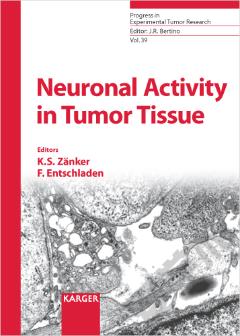Neuronal Activity in Tumor Tissue
This book summarizes the current knowledge on how tumors interact with the nervous system and what impact this might have for the progression and treatment of cancer. It begins with an introduction to the organization and physiology of the nervous system, especially of the peripheral nervous system with its high degree of plasticity. Subsequent chapters discuss the interaction between peripheral nerves and tumor cells, the so-called neuro-neoplastic synapse, with regard to carcinogenesis, predictive tumor markers, tumor growth and tumor progression leading to metastasis. In this part, the concept of neoneurogenesis is postulated as a process by which the tumor regulates its own innervation through the release of neurotrophic factors, in analogy to the process of neoangiogenesis discovered three decades ago. Once nerve endings have grown into the tumor, these can release neurotransmitters which promote tumor cell migration and metastasis development. The final chapters reflect on the role of stem cells in neoneurogenesis and consider pharmacological approaches for the inhibition of neuro-neoplastic interactions as a basis for new anticancer therapies. Targeted primarily at investigators in experimental and clinical oncology, this book is also of special interest to neurobiologists as well as developmental and cell biologists.
{{comment.content}}








 京公网安备 11010802027623号
京公网安备 11010802027623号